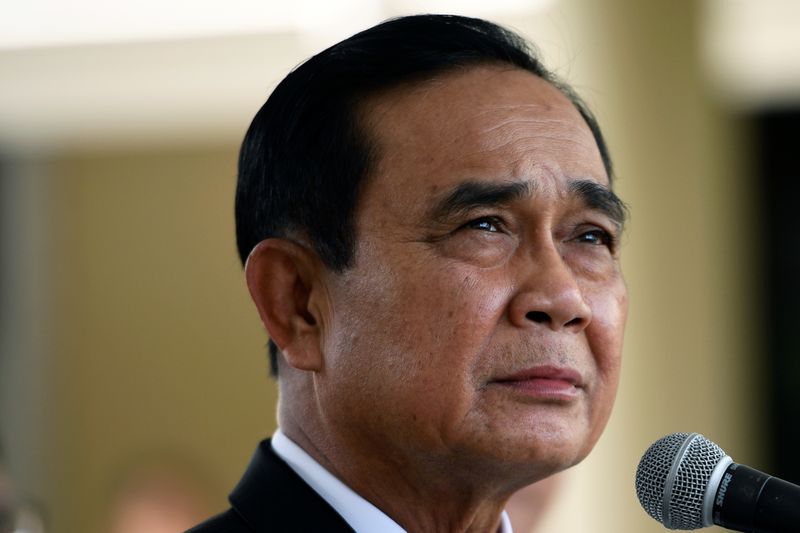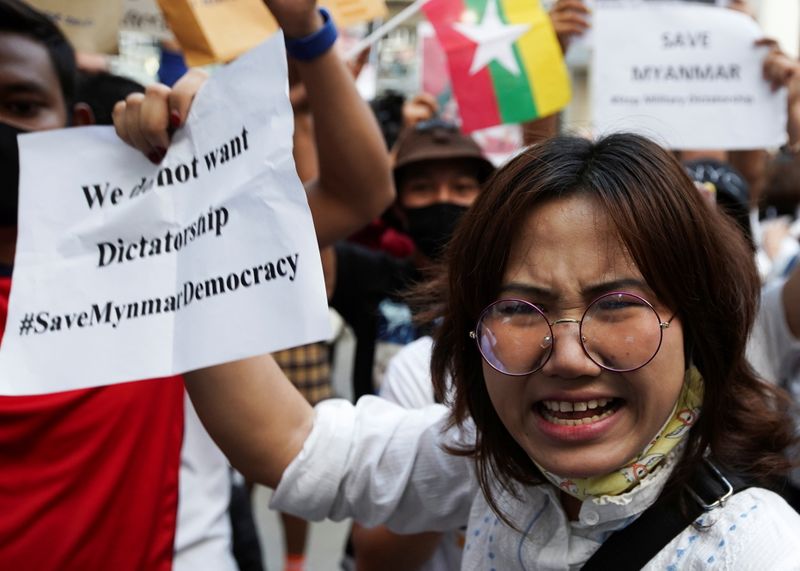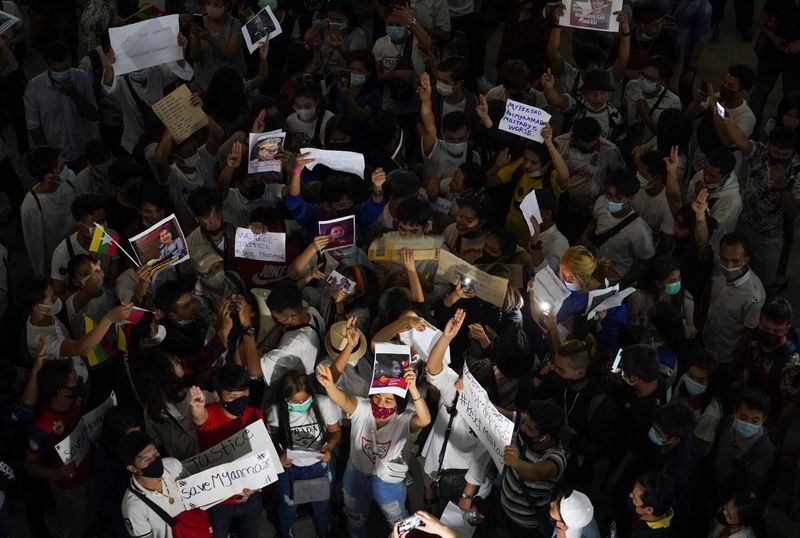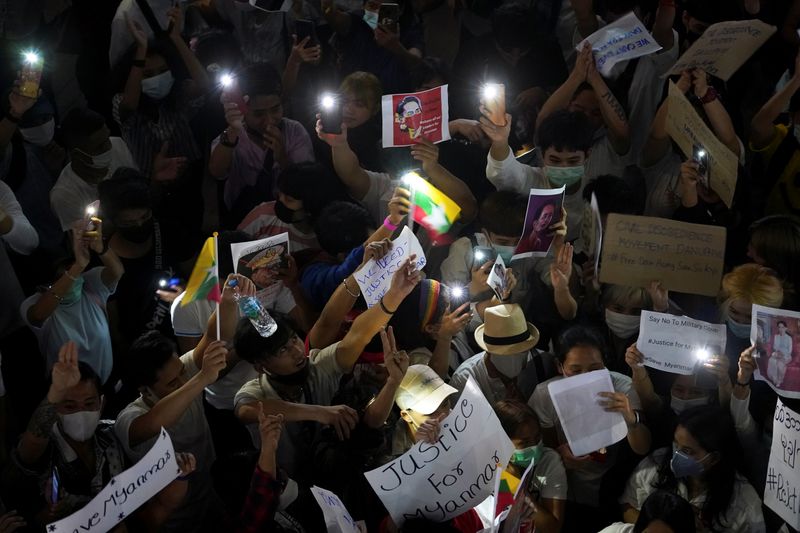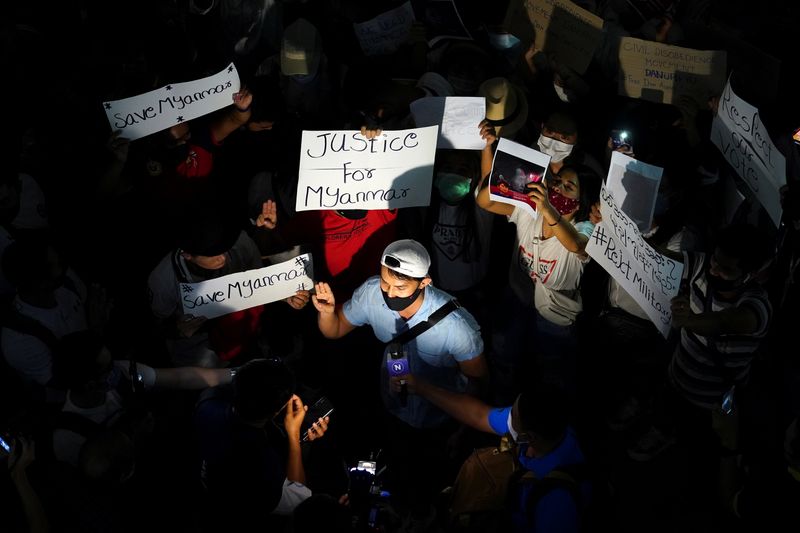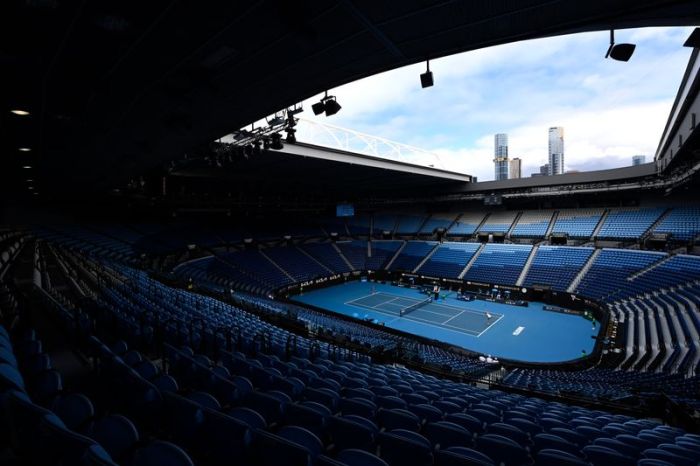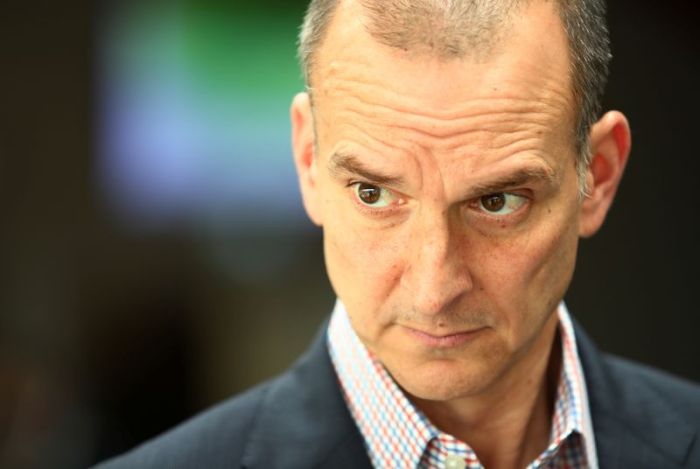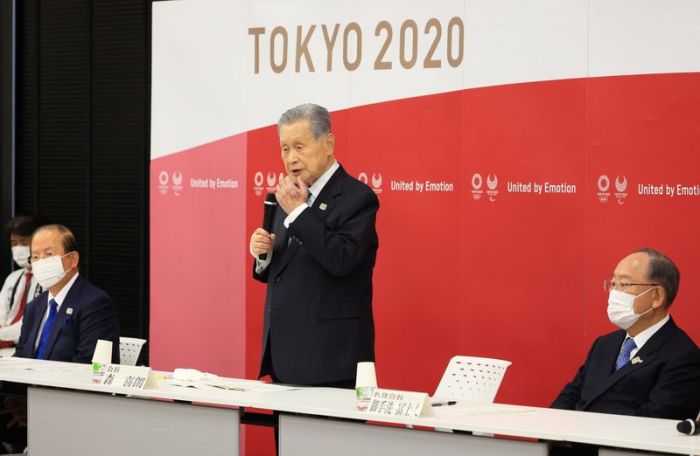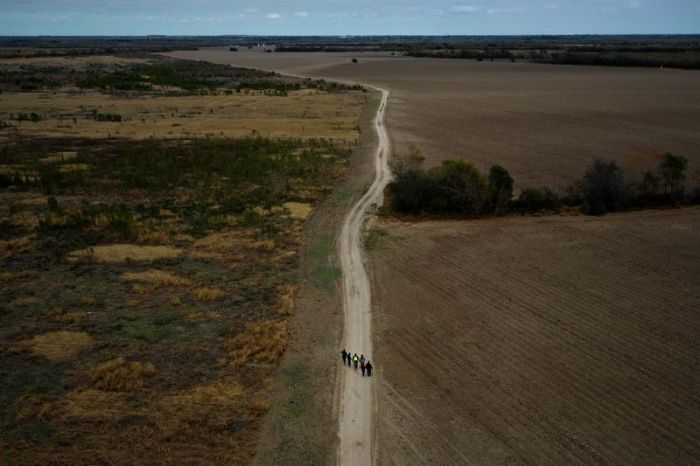BANGKOK (Reuters) – Thai Prime Minister Prayuth Chan-ocha, who first seized power in a coup, said on Wednesday he had received a letter from Myanmar’s new junta leader asking for help to support democracy.
Prayuth, who overthrew an elected prime minister in 2014 and stayed in office after a 2019 election some of his rivals said was badly flawed, told reporters in Bangkok that he had always supported democracy in the neighbouring country. Thailand’s government rejected accusations of serious flaws in the Thai election.
Min Aung Hlaing’s army overthrew Myanmar’s elected civilian leader Aung San Suu Kyi on Feb. 1 and detained her, alleging fraud in an election last year that her party won in a landslide. The electoral commission had dismissed the army’s claims.
“We are supportive of the democratic process in Myanmar but what is most important today is to maintain good relations because it impacts the people, the economy, border trade, particularly now,” Prayuth said.
“Thailand supports the democratic process. The rest is up to him to see how to proceed,” he said.
Since the coup, Myanmar has been convulsed by the biggest protests in more than a decade as Suu Kyi’s supporters challenge the coup that halted a tentative decade-long transition to democracy.
Thailand witnessed its biggest protests in decades last year as Prayuth’s opponents demanded that he step down, accusing him of engineering the last election to continue the domination of Thai politics by the army and monarchy. He denies any interference.
Tanee Sangrat, spokesman for Thailand’s foreign ministry, wrote to Reuters to reject allegations in a Wednesday story that the election was “badly flawed”.
“The claim is unsubstantiated and baseless,” he said.
He said Thailand’s general elections were held peacefully under a constitution approved by a referendum, that there was no vote boycott and that Prayuth had been able to secure a majority for his coalition in both houses of parliament.
Voting day went smoothly. However, all rival parties to Prayuth had complained at what they saw as flaws in the military government’s election process – starting with a military-drafted constitution, which gave Thailand’s entire upper house to junta appointees and which was approved in a 2016 referendum at which campaigning against the proposed consitution was banned.
This constitution was criticised by all rivals, including the Pheu Thai party linked to self-exiled former prime minister Thaksin Shinawatra, the conservative Democrat Party and the newly formed Future Forward party of Prayuth’s most vocal challenger, Thanathorn Juangroongruangkit.
A party linked to Thaksin, who remains influential in Thai politics, was disqualified before the ballot. He described the vote as “rigged” because he said so many measures had been taken to help the junta. The government rejected allegations of rigging and also rejected other criticisms of the election process expressed by Pheu Thai and Thanathorn.
Independent observers from the Asian Network for Free Elections characterised Thailand’s election as “partly free, and not fair”, saying it was ” not a truly democratic process.”
(Reporting by Panarat Thepgumpanat; Editing by Matthew Tostevin, Nick Macfie and William Mallard)

